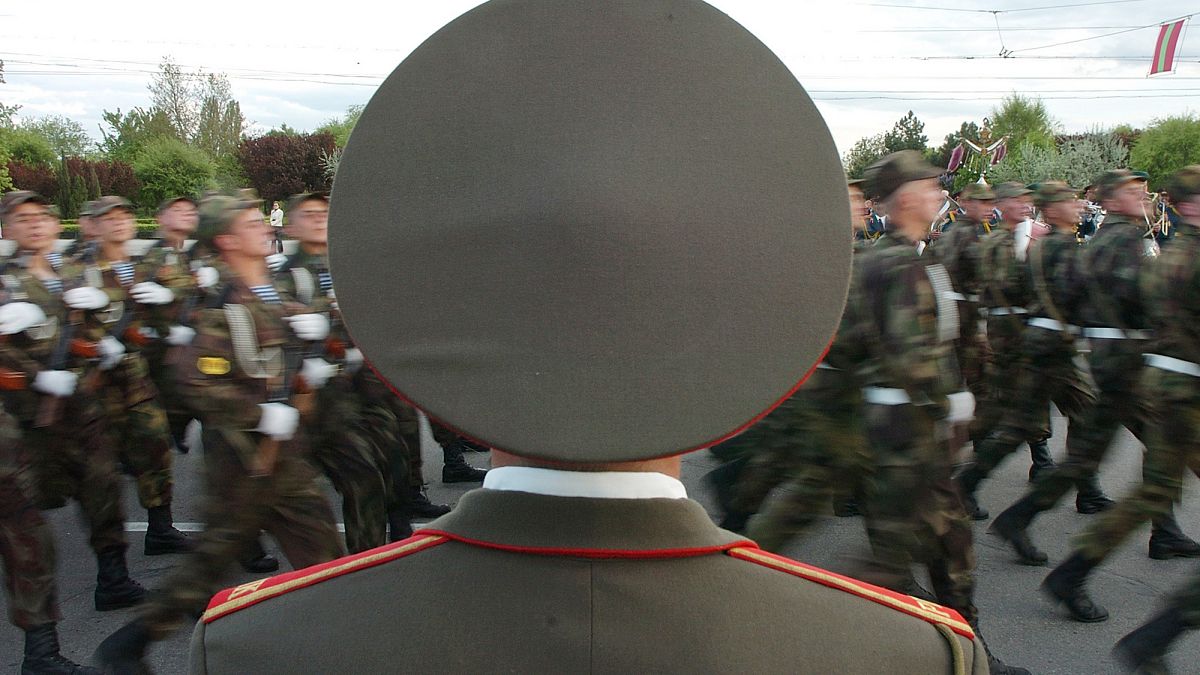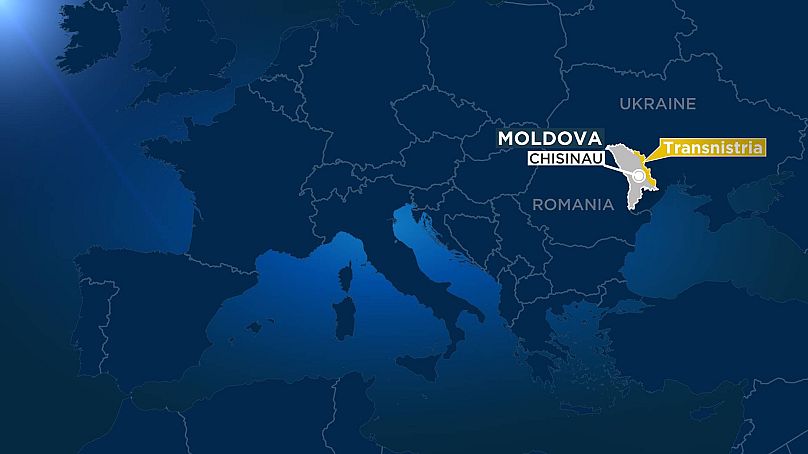It declared independence from Moldova in 1992. But almost 30 years on, this tiny breakaway republic is set to have an outsized impact on Moldova's election.
On July 28, President Igor Dodon of Moldova hosted the leader of Transnistria, Vadim Krasnoselsky, to Chisinau and called him president. It was the first time that a leader of the breakaway region on the left bank of the Dniester river had been afforded the title in 28 years.
Transnistria declared its independence from Moldova in 1990, and war broke out two years later between the Moldovan army and Transnistrian rebels, backed by Russia.
After four months of fighting, Moldova and the Russian Federation signed a peace agreement on July 21, 1992, under which Moscow deployed its soldiers under the pretext of peacekeeping.
They’re still there.
Transnistria is largely unrecognised internationally and considered a breakaway region of Moldova. It has its own army, flag and anthem and issues its 500,000 people - mostly Ukrainian, Moldovan and Russian - Transnistrian passports, although they are effectively useless.
But although relations between Moldova and Transnistria are necessarily frosty, the territory’s Moldovans have proved a valuable voting bloc for Dodon and other pro-Russian parties in Moldova. In 2016 and 2019, tens of thousands of Moldovans from Transnistria were bussed across the Dniester to vote in Moldova, it is alleged that many were paid for their troubles.
Transnistria has always been close to Russia, and not just militarily. Russia has provided Transnistria with free gas since 2005 and topped up the pensions and salaries of citizens to keep the economy afloat. Transnistrian authorities still require most schools to teach in Russian and have banned the Latin alphabet of Romanian and replaced it with Cyrillic.
It is no surprise, then, that when Moldovan Transnistrians do vote, it tends to be for Dodon and his allies. Less surprise still that Dodon is outspoken about the rights of Moldovans living in Transnistria to be given the opportunity to vote, just as the one million Moldovans living elsewhere in the world can.
And because the election on Sunday (November 1) between Dodon and his rival, former prime minister Maia Sandu, is expected to be so close, a few thousand votes from Transnistria could make the difference.
"Dodon will bus people from Transnistria. They are not informed, and socialists will pay them and tell them to vote in their favour,” said Ion Tabarta, a political analyst from Chisinau-based NGO IDIS Viitorul.
"It is about electoral fraud in the given case to spoil the outcome. Our authorities should step up and use certain filters and take control of the situation.”
Although Moldova’s Central Electoral Commission recently banned the organised transportation of voters to the polling stations on election day - restricting vehicles with more than eight seats from being used on election day - critics say that the law may not be applied effectively.
"It is important that this CEC decision to be implemented on the voting day both in letter and in spirit, so that this year's presidential election does not repeat the massive buying of votes in the Transnistrian region as happened in 2016 and 2019," Sergiu Litvinenco, an opposition figure, wrote on his Facebook page.
In November 2016, when Dodon won the presidential election against Sandu by some 70,000 votes, 16,788 voters from Transnistrian were bused in to vote in Moldova.
Then in 2019, 37,177 Transnistrians crossed the Dniester River in buses and mini-buses and lined-up in massive queues outside polling stations to cast their votes.
Then there is Dodon’s courting of Krasnoselsky, who declined to be interviewed by Euronews, and a delegation of ministers and economic experts from Transnistria in July. The delegation requested that Chisinau help Transnistria end the blocking of Visa and MasterCard transactions in the territory, improve transport links and drop criminal charges against senior political figures.
A few days later, the Moldovan government postponed for the sixth time in the last three years taxes on cigarettes and alcohol imported and exported by companies in Transnistria via three major points on the Moldovan-Ukrainian border
Transnistria return's the favour
It seems that Transnistria is willing to return the favour. Tiraspol announced on October 1 that restrictions on movement designed to prevent the spread of COVID-19 would be lifted on November 1, the day of Moldova’s presidential election. It added that Transnistrians with Moldovan documents could cross the Dniester to vote if they wanted to.
Sandu, speaking to Euronews earlier this month, criticised the Socialist Party’s failure to prevent Moldovans in Transnistria voting in Moldovan elections and while the European Union has not mentioned the practice explicitly, it did warn against the buying of votes and voter coercion.
"The forthcoming presidential elections, from November 1 2020, must be organized in a credible, inclusive and transparent manner, respecting democratic standards and ensuring the rule of law," said an EU press release in September.
Meanwhile, the American ambassador to Chisinau, Dereck Hogan, told Moldovan media recently that he had received assurances that the 2020 election would not see a repeat of the bussing in of Transnistrian voters as took place in 2016.
"I really hope it doesn't happen again. They [the state authorities] assured us that this year, it will not be like that. We want, of course, the promise to be kept," he said.
One of the main objections to Moldovans in Transnistria voting in Moldova is that only a minority do so out of a genuine interest in the politics of Moldova. Valeriu Pasa, at the Chisinau-based NGO the Watchdog Community, said that it is the bussing in of voters that is to be opposed.
"If we are talking about the citizens who always come voluntarily to elections, we are talking here about 3-5,000 people. There are citizens of Moldova who feel the need to participate in the political life of the country. And this is ok when they come brought by no one,” Pasa said.
"People are forced and bribed to come and vote - and we have a massive vote-buying. It is fraud. We cannot name it otherwise.”

